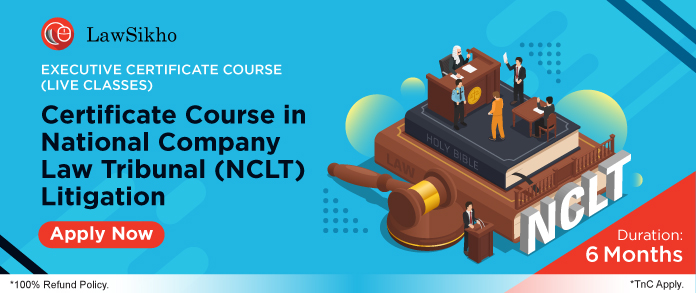This article has been written by Hinal Khon, pursuing a Diploma in National Company Law Tribunal Litigation from LawSikho. It has been edited by Aatima Bhatia (Associate, LawSikho) and Smriti Katiyar (Associate, LawSikho).
Table of Contents
Introduction
Intellectual property law is the general area of law that encompasses copyrights, patents, designs, and trademarks. (Talagala, 2012). The concept of intellectual property law is recognized and accepted worldwide, and developed and developing countries are enacting laws to protect individual intellectual property rights. Intellectual property, with its international and complex nature, generally regulates the invention, use, and exploitation of mental or creative labor. (Talagala, 2012). A salient feature of intellectual property law is the continuous expansion of its subject matter. The primary goal of intellectual property law is to encourage human invention by safeguarding intellectual property rights. This article lays down a comparative analysis of IP Law in Sri Lanka and EU Directives.
Intellectual property law in Sri Lanka
Sri Lanka’s legal system has its roots in history. The main legal traditions that are applicable throughout the country are Roman-Dutch law and English law. While Roman-Dutch law arrived during the Dutch rule, the common law of the land was borrowed from the British government. (Talagala, 2012). The intellectual property law in Sri Lanka is of British origin. The British laws continued t even after independence; however, Sri Lanka was driven to develop a better framework for protecting intellectual property rights in the setting of an evolving commercialized society with the introduction of the open economy. Following this need, the Code of Intellectual Property Act No. 52 of 1979 was enacted as part of a program to update all business laws in the country, based on the World Intellectual Property Organization’s [WIPO] recommendations. As a party to the TRIPS Agreement, Sri Lanka was required to establish an intellectual property law regime based on the Agreement’s requirements. As a result, in 2003, the Intellectual Property Act No. 36 of 2003 was enacted in strict accordance with TRIPS rules. (Talagala, 2012)
Sri Lankan copyright law is based on the Intellectual Property Act No 36 of 2003, which Parliament adopted to protect and recognize the country’s intellectual property rights. (Philips, 2009). In Sri Lanka, intellectual property law confers ownership rights in copyright, patents, designs, trademarks, and trade names. The current direction of unfair competition is also governed by the Intellectual Property Act, which encompasses a range of elements. (Talagala, 2012).
Enforcement Mechanism of IP laws in Sri Lanka
There are four aspects to the enforcement mechanism of IP laws in Sri Lanka: civil judicial procedures, criminal procedures and penalties, customs control and dispute resolution through the Director-General of Intellectual Property. (Talagala, 2012). Under current law, the copyright term for works created by individuals in the author’s life plus 70 years. (Philips, 2009).
The intellectual property rights owner can file a civil suit in the court against people who infringe on their rights, threaten to infringe on their rights, or are likely to infringe on their rights under the Act. (Talagala, 2012). The owner has three remedies: injunction, damages, and other reliefs as the court may deem and equitable. In addition to this, the court has jurisdiction to issue orders dealing with enforcement of IP rights such as disposal of the infringing goods outside the commerce channel or distribution of goods with compensation. (Talagala, 2012)
The Intellectual Property Act has made willful infringement of intellectual property rights offenses punishable with fine, imprisonment or both where proceedings can be instituted by the owner of the IP right in concern or the police. (Talagala, 2012)
It has also developed an innovative mechanism of IP enforcement in which owners of copyright or related rights who have been aggrieved or affected by a violation of their rights can seek redress from the Director-General of Intellectual Property. It is a method of enforcement that takes the form of a dispute resolution system rather than a quasi-judicial inquiry. (Talagala, 2012).
IP law in EU
Intellectual property law has its origin in Europe. Intellectual property regulations in the EU are significantly . Many international conventions cover this, most of which are enforced by the World Intellectual Property Organization (WIPO) and the World Trade Organization (WTO). (Oxford LibGuides: Intellectual Property Law: European Union, 2021). The primary objective of Directive (EU) 2019/790 of the European Parliament and of the Council of 17 April 2019 is to create a comprehensive and coherent legal framework to facilitate innovation, creativity, investment, and production of new content, including in the digital environment, to avoid fragmentation of the internal market. Along with it, the EU directives also facilitate the use of content in the public domain.
Difference between the laws in both countries
The IP law in both countries differs in many instances, even though the law in Sri Lanka law is inspired from the Europe. Some of the significant differences between the laws in both countries are stated below. (Bandara & Ariyadasa, 2019)
- EU directives safeguard the rights arising from the internet, in addition to the distribution of out-of-commerce works and other subject matter and the online availability of audiovisual works on video-on-demand platforms to ensure complete access to the material. At the same time, the Sri Lankan legal system is entirely unaware of the internet’s advent.
- The EU Directives ensure the promotion of academic research over the internet while protecting the author’s rights and ensuring cross-border participation. In comparison, the rights of Sri Lankan authors are confined to black letters, which were drafted in 2003 and provide enforcement of a territorial nature .
- The Directives face text and data mining corporations, requiring them to get the authorization to preserve data. While EU Directives mainly clarify the fair use of copyrightable material by providing a loophole for data mining businesses, Sri Lankan law makes no mention of digitization or data mining. Although the IP Act elaborates on the fair use exception, it does not explicitly mention digital data or work.
- Sri Lankan IP law does not address cross-border piracy of digital works. However, EU Directives ensure material licensing to unify new mandatory exceptions or limitations concerning digital uses and cross-border educational activities.
- While the EU Directives require the Member States to provide an exception to allow cultural heritage institutions to permanently reproduce works and other subject-matters in their collections for preservation purposes, the Sri Lankan IP Act protects folklore under section 6, and no mechanisms to protect rights or licensing agencies to secure them have been posited.
- According to EU directives, states should ensure that suitable safeguards are in place to protect the right holder’s legitimate interests. While sections 9 and 10 of the Sri Lankan Intellectual Property Act protect owners and authors, the Act lacks a sufficient framework.
- For these directives, it is appropriate to offer a specific liability mechanism if no authorization is obtained. In contrast, the IP Act of Sri Lanka is silent on online content sharing, even though section 6 of the IP Act protects literary works.
- EU Directives suggest essential assessment criteria for the owner of copyrights online-content-sharing service providers; they have to put up their best efforts according to industry-wide professional diligence norms. The law in Sri Lanka is silent on content providers and does not address intermediary liability.
- Author and performer remuneration should be reasonable and proportionate to the actual or potential economic value of the licensed or transferred rights, taking into account the author’s or performer’s contribution to the overall work or other subject matter, as well as all other relevant circumstances. Although a lump sum payment can be considered appropriate remuneration, it should not be the rule. Member states should be able to establish certain situations in which lump sums should be applied. Moral rights are recognized under the IP Act, as well as the Authors’ recompense.
Conclusion
Intellectual property refers to the ownership of intangible assets such as ideas, information, and knowledge. In pre-colonial Sri Lanka, there is little indication that private intellectual rights in ideas, information, and knowledge existed within a legal framework , as they do today. (Talagala, 2012). Intellectual property rights is a western concept that emerged in Sri Lanka. Even though intellectual creations are common in every culture and society, how intellectual property rights are recognized, protected, and enforced varies significantly from one country to the next. The intellectual property concept has created many complexities and difficulties in understanding the principles and core principles by the public. For example, a person who buys a car can rent it out and make money, whereas a person who buys a CD or DVD cannot legally do so due to copyright requirements in the Intellectual Property Act. (Talagala, 2012). These problems have been made even more challenging by modern technological breakthroughs. The Intellectual Property Act was enacted in 2003, and it provides a comprehensive framework for protecting IP rights, but it’s practical nature in enforcement is somewhat weak. Sri Lanka’s current intellectual property framework is frequently viewed as a system imposed on the country as part of a trade deal. (Talagala, 2012).
References
- Talagala, C. S. (2012). Enforcement of Intellectual Property Rights in Sri Lanka: Some Issues. SSRN Electronic Journal. Published. https://doi.org/10.2139/ssrn.2136251
- Bandara, I., & Ariyadasa, A. A. (2019). PROTECTION OF COPYRIGHT OWNERS & AUTHORS RIGHTS IN THE INTERNET: A COMPARATIVE ANALYSIS OF IP LAW IN SRI LANKA AND EU DIRECTIVES. International Conference On Business Innovation (ICOBI), 159–163. https://www.nsbm.ac.lk/wp-content/uploads/2021/08/ICOBI_2019_Protection-of-Copyright-Owners-Authors-Rights-in-the-Internet-A-Comparative-Analysis-of-IP-Law-in-Sri-Lanka-and-European-Directives.pdf
- Philips, D. (2009). An Introduction to the Law of Copyright. Journal of the University Librarians Association of Sri Lanka, 13(1), 71. https://doi.org/10.4038/jula.v13i1.1335
- Libguides.bodleian.ox.ac.uk. 2021. Oxford LibGuides: Intellectual Property Law: European Union. [online] Available at: https://libguides.bodleian.ox.ac.uk/c.php?g=422962&p=2888482 [Accessed 10 November 2021].
Students of Lawsikho courses regularly produce writing assignments and work on practical exercises as a part of their coursework and develop themselves in real-life practical skills.
LawSikho has created a telegram group for exchanging legal knowledge, referrals, and various opportunities. You can click on this link and join: https://t.me/joinchat/J_0YrBa4IBSHdpuTfQO_sA
Follow us on Instagram and subscribe to our YouTube channel for more amazing legal content.
 Serato DJ Crack 2025Serato DJ PRO Crack
Serato DJ Crack 2025Serato DJ PRO Crack










 Allow notifications
Allow notifications


